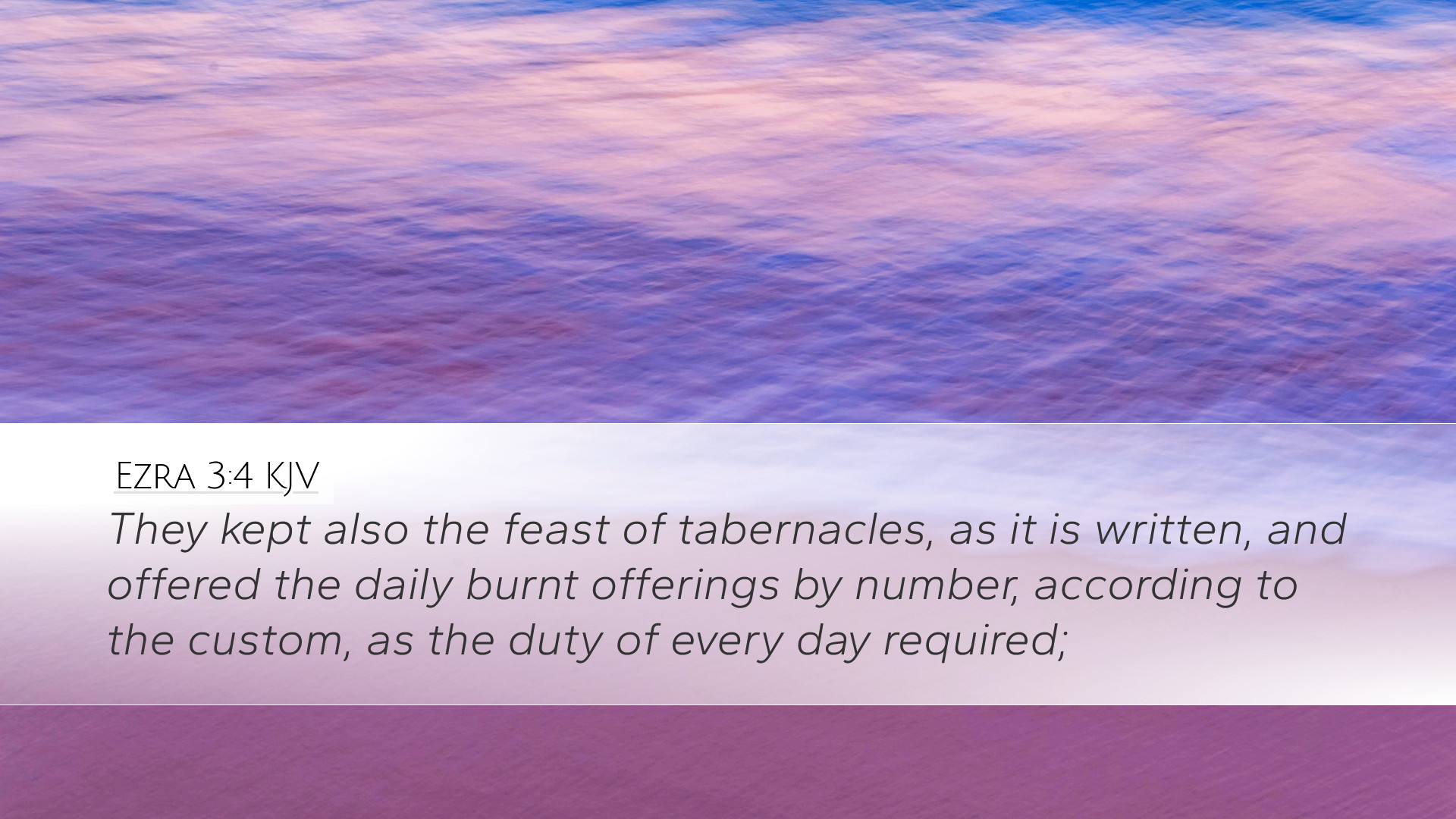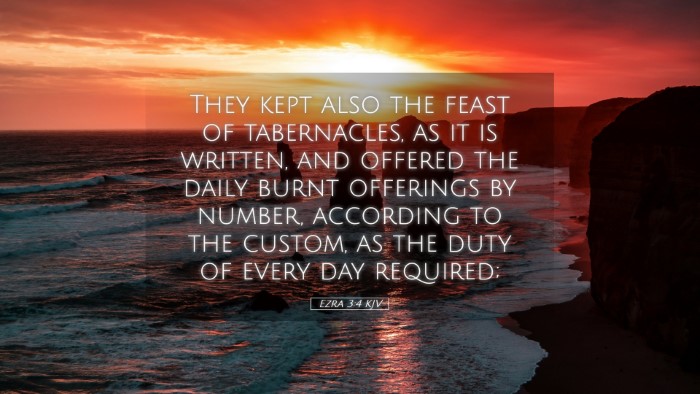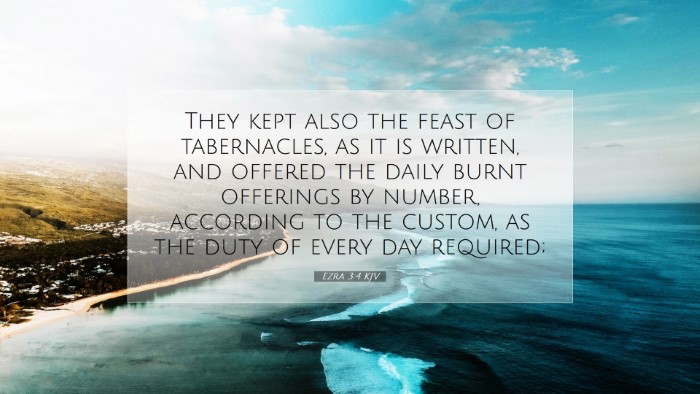Old Testament
Genesis Exodus Leviticus Numbers Deuteronomy Joshua Judges Ruth 1 Samuel 2 Samuel 1 Kings 2 Kings 1 Chronicles 2 Chronicles Ezra Nehemiah Esther Job Psalms Proverbs Ecclesiastes Song of Solomon Isaiah Jeremiah Lamentations Ezekiel Daniel Hosea Joel Amos Obadiah Jonah Micah Nahum Habakkuk Zephaniah Haggai Zechariah MalachiEzra 3:4
Ezra 3:4 KJV
They kept also the feast of tabernacles, as it is written, and offered the daily burnt offerings by number, according to the custom, as the duty of every day required;
Ezra 3:4 Bible Commentary
Commentary on Ezra 3:4
The verse Ezra 3:4 states, "They kept also the feast of tabernacles, as it is written, and offered the daily burnt offerings by number, according to the custom, as the duty of every day required." This passage indicates the restoration of worship practices after the return of the Israelites from Babylon, focusing on the significance of their observance of the Feast of Tabernacles.
Introduction
This commentary seeks to explore the implications of the observance of the Feast of Tabernacles, the importance of maintaining prescribed religious customs, and the broader context of Israel's return to worship. Insights from respected commentators, including Matthew Henry, Albert Barnes, and Adam Clarke, will be synthesized to provide a comprehensive understanding.
Historical Context
Ezra's narrative emerges during the post-exilic period when the Israelite community aims to rebuild their society and adherence to Mosaic law becomes paramount. The people, having suffered exile, recognize the necessity of returning to foundational practices that define their identity.
- Matthew Henry's insights: He emphasizes that the restoration of the feasts was essential for re-establishing the community's relationship with God. The observation of the Feast of Tabernacles is viewed as an act of obedience and remembrance of God’s provision during their forefathers' wilderness wanderings.
- Albert Barnes' perspective: Barnes highlights the communal aspect of the observance, noting that this feast was a collective expression of joy and thankfulness. It fosters unity among the returned exiles as they reconnect with their ancestral traditions.
- Adam Clarke's understanding: Clarke points out the significance of following the law strictly. By adhering to established practices, the people affirm their commitment to God and His commandments, reinforcing their covenant identity.
The Significance of the Feast of Tabernacles
The Feast of Tabernacles, or Sukkot, served multiple purposes in Israelite society, which should not be overlooked:
- Commemoration: The feast is a vivid reminder of God’s deliverance and provision during the exodus. It calls the Israelites to remember their roots and celebrate their dependence on God's mercy and sustenance.
- Joy and Unity: This festival was marked by great joy and participation from all segments of society. It symbolized unity in worship, allowing everyone to engage in the celebration, fostering a renewed sense of community after the trauma of exile.
- Obedience: The meticulous nature of their observance as prescribed highlights their desire to comply with divine mandates. Such acts are crucial for maintaining spiritual discipline among God’s people.
Application for Today's Believers
The observance of the Feast of Tabernacles has implications for modern believers as it embodies principles that transcend time:
- Remembering God's Faithfulness: Believers today are called to remember God's past faithfulness in their lives and communities, taking time to reflect on His provision and guidance.
- Community Worship: In an age where individualism often prevails, this passage encourages corporate worship and shared experiences of gratitude, reminding believers of the strength found in unity and shared faith.
- Commitment to Scripture: Like the Israelites, contemporary followers of Christ are prompted to adhere faithfully to Scripture and maintain a culture of worship that aligns with God's teachings.
Conclusion
Ezra 3:4 serves as a critical reminder of the importance of returning to foundational practices after experiencing turmoil. The careful observance of the Feast of Tabernacles symbolizes a return to joy, community, and obedience to God. As Matthew Henry, Albert Barnes, and Adam Clarke suggest, this verse not only resonates with the historical context of post-exilic Israel but also carries vital lessons for believers today, emphasizing remembrance, unity, and commitment to God’s ways.


